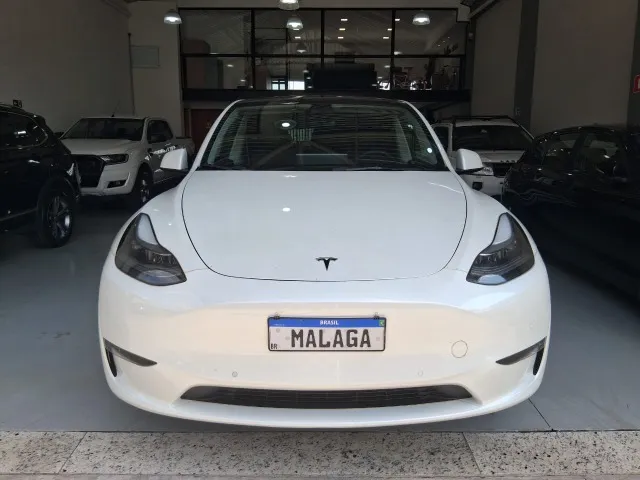In 2023, Brazil is experiencing an electric vehicle (EV) revolution that is reshaping its automotive landscape. With EV sales in Brazil increasing by over 70% compared to last year, according to Bloomberg Green, the country is rapidly becoming a key player in the global shift towards sustainable transportation. But what is driving this surge in electric mobility in Brazil, and what can other emerging markets learn from its success? In this article, we will delve into the factors fueling Brazil’s EV boom, the challenges it faces, and the opportunities it presents for both local and international players.
Understanding Brazil’s Growing EV Market
The Rise of Electric Vehicles in Brazil
Brazil’s embrace of electric vehicles can be attributed to several key factors:
- Government Incentives and Policies: Brazil has implemented a series of incentives to encourage the adoption of EVs. These include tax breaks, reduced import duties, and subsidies for electric car purchases. The Brazilian government aims to have 30% of all vehicles sold in the country to be electric by 2030.
-
Infrastructure Development: The expansion of charging infrastructure is crucial for the growth of the EV market. Companies like EDP and WEG have been pivotal in developing a network of charging stations across major cities, making EV ownership more convenient for consumers.
-
Local Manufacturing Initiatives: Brazilian companies, such as Embraer, are investing in local production of EV components. This not only reduces dependency on imports but also creates jobs and stimulates economic growth.
Major Players and Emerging Trends
Brazil’s EV market is attracting both traditional automakers and new entrants:
- Global Brands: Companies like Volkswagen and Nissan are increasing their presence in Brazil with models like the Volkswagen ID.4 and the Nissan Leaf, offering consumers more choices in the EV segment.
-
Local Innovators: Brazilian startups are also making waves. For instance, Voltz Motors, known for its electric scooters, is expanding into electric cars, catering to urban commuters.
-
Sustainable Mobility Solutions: Shared mobility services, such as electric bike and car-sharing platforms, are gaining traction, particularly in urban areas like São Paulo and Rio de Janeiro. These services offer a practical and eco-friendly alternative to traditional transport.
Challenges in the Brazilian EV Market
Infrastructure and Energy Supply
While progress is being made, challenges remain:
- Charging Infrastructure: Despite improvements, Brazil still lags behind developed nations in terms of the density of charging stations. Continued investment is needed to ensure widespread coverage.
-
Energy Sources: Brazil’s reliance on hydroelectric power is both a strength and a vulnerability. During droughts, the country faces energy shortages, which could impact the stability of the EV charging network.
Consumer Awareness and Affordability
-
Education and Awareness: Many consumers are still unaware of the benefits of EVs, including lower running costs and environmental impact. Educational campaigns are essential to increase adoption.
-
Affordability: The upfront cost of EVs remains a barrier for many Brazilians. Although prices are gradually decreasing, more affordable models and financing options are needed to reach a broader audience.
Opportunities and the Road Ahead
Investment and Innovation
Brazil’s EV boom presents numerous opportunities for investors and innovators:
- Battery Technology: Advances in battery technology, such as lithium-ion and solid-state batteries, are crucial for improving the range and reducing the cost of EVs. Companies investing in research and development stand to benefit significantly.
-
Partnerships with International Brands: Collaborations between Brazilian firms and international automakers can accelerate technology transfer and market penetration.
-
Renewable Energy Integration: Brazil has vast renewable energy potential, particularly in solar and wind power. Integrating these sources with EV charging infrastructure could enhance sustainability.
Practical Tips for Prospective EV Buyers in Brazil
-
Where to Buy: Major cities like São Paulo and Rio de Janeiro have numerous dealerships offering a variety of EV models. Online platforms also provide options for comparing prices and features.
-
How to Charge: Look for homes with access to a garage or private parking where you can install a Level 2 home charger. Public charging stations are also available at shopping malls and service stations.
-
What to Compare: When selecting an EV, consider factors such as range, charging time, and total cost of ownership. Models like the BYD e6 and Hyundai Kona Electric are popular choices for their balance of price and performance.
Conclusion: Brazil’s Bright Electric Future
As Brazil continues to embrace electric vehicles, it sets a compelling example for other emerging markets looking to transition to sustainable transportation. With a combination of government support, infrastructure development, and innovative local initiatives, Brazil is on track to become a leader in the EV space. For consumers and businesses alike, the opportunities are vast, from investing in new technologies to enjoying the benefits of cleaner, more efficient transport.
Are you ready to join the electric revolution? Share your thoughts and experiences with EVs in Brazil, and let us know how you see the future of mobility unfolding in this vibrant market. As Brazil paves the way, it’s clear that the electric future is not just a distant dream but an exciting reality.

